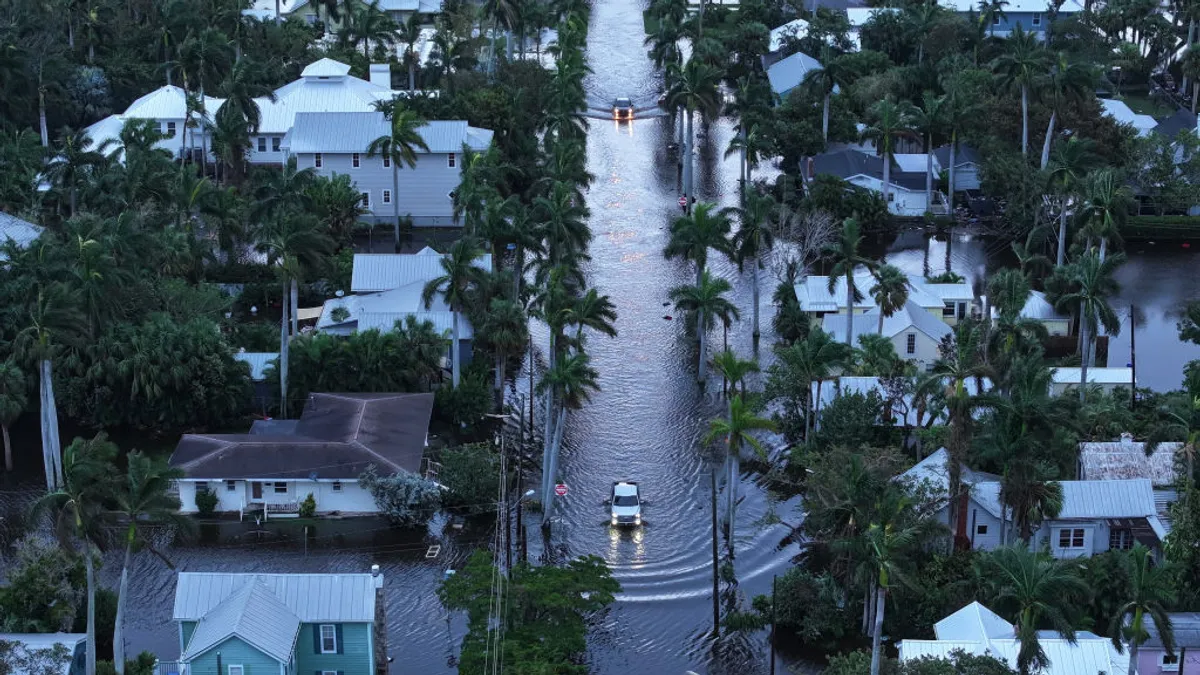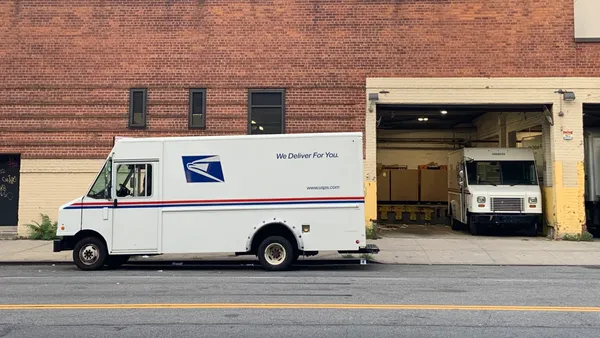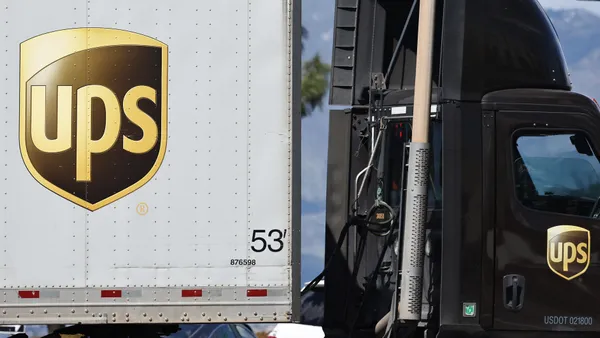Editor’s note: This story has been updated to reflect initial impacts of the storm and port operational statuses as of Thursday morning.
Hurricane Milton made landfall south of Tampa, Florida, Wednesday evening, bringing with it heavy rains and damaging winds that have interrupted supply chain operations in the state.
The Category 3 storm tore through eastern and central Florida overnight, according to the National Hurricane Center, which noted that the storm has moved into the Atlantic Ocean.
The Tampa Bay area will experience major impacts across port operations as well as road, rail and air traffic due to flooding, according to emailed comments Thursday from Jon Davis, chief meteorologist at Everstream Analytics.
Port operations disrupted
Port Tampa Bay ceased inbound and outbound vessel traffic and closed shipping channels ahead of the storm’s landfall, according to an Oct. 8 update.
Other major supply chain centers in Florida, including Miami and Jacksonville, as well as Savannah, Georgia, have faced more moderate impacts, according to Davis.
In preparation for the storm’s impact, Jacksonville Port Authority closed Wednesday and will remain closed today, the port said Wednesday. Landside operations at Port Everglades have resumed as of Thursday morning, though waterside operations remain suspended.
PortMiami resumed cargo operations on Thursday, according to a port notice.
Meanwhile, interior portions of the state are facing more “severe and extreme” impacts from flooding and wind damage, according to Davis.
Trucking routes flooded
Major roadways across the storm’s path, including Interstate 75, Interstate 275, Interstate 4, Interstate and Interstate 95 and Interstate 75, have been particularly affected, Davis said. In addition, rail lines and intermodal hubs are also in the “zone of highest risk.”
“When all is said and done, the length of disruptions in the hardest hit areas will likely be measured in weeks,” Davis said.
Depending on the breadth of the storm’s destruction, the trucking market in the state may tighten up as capacity is allocated to transporting basics like food and water and the resources to rebuild, Rick Jordon, senior managing director at FTI Consulting, said. With less available capacity and potential fuel supply disruptions, logistics costs, including trucking rates, could also spike.
Parcel carriers suspend some services
The parcel delivery sector is also feeling the effects of the storm. Carriers began preparing for the storm’s impact earlier this week, even as they continue sorting through service disruptions in North Carolina caused by Hurricane Helene.
In an Oct. 10 update, FedEx said that “delays and disruptions are possible for inbound and outbound shipments in markets along the west coast of Florida.” The carrier has also suspended service for its Express, Ground and Freight offerings across multiple Tampa area zip codes.
The United States Postal Service has temporarily shuttered retail and delivery options in the 326, 344, 328, 329 and 347 zip codes.
Meanwhile, UPS will continue providing pickup and delivery services but warned that delays are possible.














